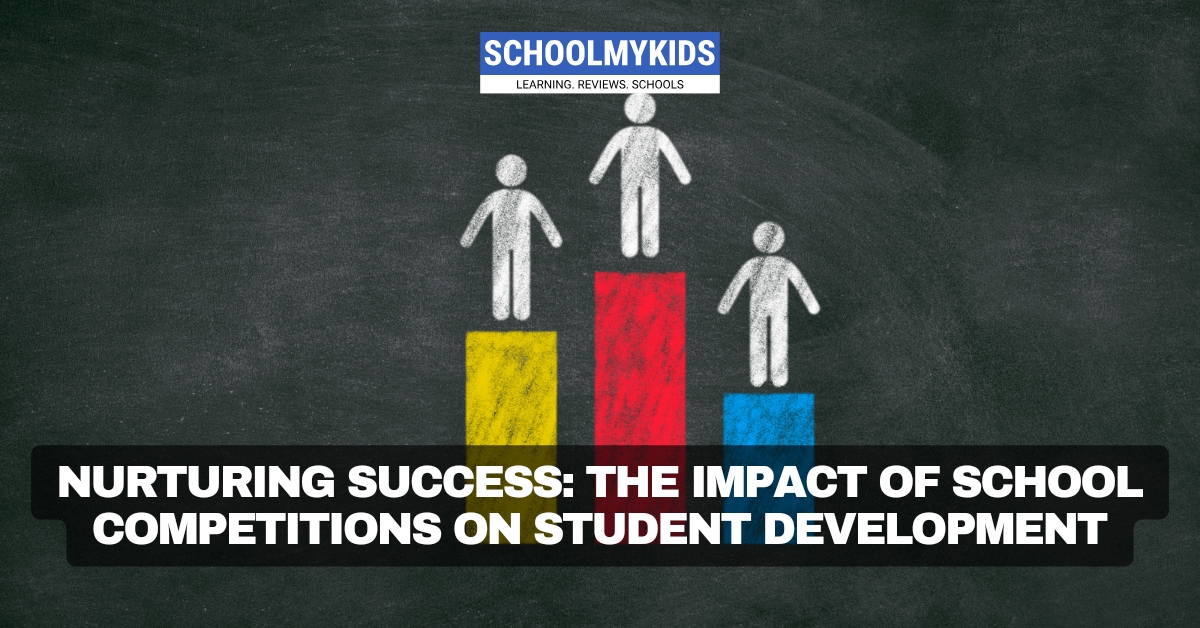School competitions significantly shape kids' development, offering growth opportunities beyond mere academic achievements. From spelling bees and math olympiads to sports tournaments and science fairs, these events provide students a platform to show their skills and build confidence.
While competition can foster a sense of accomplishment and motivate students to excel, it is essential to recognize the psychological dynamics at play. Understanding these dynamics will help us navigate the fine line between healthy and unhealthy competition, ensuring that we guide our children in a way that promotes their well-being.
The Psychological Benefits of School Competitions
Research has shown that competition can stimulate intrinsic motivation among students. When children engage in competitions, they often experience a surge of adrenaline and excitement, which enhances their performance. This phenomenon is partly explained by the Yerkes-Dodson Law, which posits that optimal performance occurs at moderate levels of arousal. In the context of school competitions, a healthy level of competition can lead to increased focus, creativity, and problem-solving skills as students strive to outperform their peers.
Moreover, competitions can help children develop essential life skills. Participating in school competitions teaches kids about goal-setting, perseverance, and resilience. They learn to cope with both success and failure, which are integral aspects of life. The experience of competing can bolster their self-esteem and confidence, especially when they see their hard work paying off.
The Dark Side of Competition
Despite the numerous benefits, competition can also have detrimental effects if not appropriately managed. When the pressure to win becomes overwhelming, it can lead to anxiety, stress, and a fear of failure. This is especially concerning in academic settings where the stakes are high. Children may begin to associate their self-worth with their performance, leading to unhealthy perfectionism and burnout.
Toxic competition can manifest when students feel that they must outperform their peers at any cost. This mindset can foster a cutthroat environment where collaboration and camaraderie take a backseat to individual success. Such an atmosphere can lead to bullying, exclusion, and a decline in mental health. The socio-emotional learning theory emphasizes the importance of emotional intelligence in navigating social interactions, and toxic competition undermines this development.
Teaching Healthy Competition
As parents and educators, it is our responsibility to guide children in understanding the difference between healthy and unhealthy competition. Here are some strategies to promote a balanced approach:
- Emphasize Participation Over Winning: Encourage students to focus on their efforts and personal growth rather than solely on the outcome. Celebrate participation and improvement, reinforcing the idea that the journey is as important as the destination.
- Foster Collaboration: Create opportunities for cooperative competitions where teamwork is essential. This helps children learn to value collaboration and support one another, reducing the emphasis on individual success.
- Model Healthy Attitudes: Children often emulate the attitudes of adults. By modeling a healthy approach to competition—acknowledging both wins and losses gracefully—parents and educators can instill similar values in students.
- Encourage Reflection: After competitions, facilitate discussions about what children learned from the experience. Please encourage them to reflect on their feelings and the importance of sportsmanship, regardless of the outcome.
- Monitor Stress Levels: Please pay attention to signs of tension or anxiety in children related to competition. Open communication about their feelings can help them process their experiences and develop coping strategies.
Conclusion
School competitions can be an effective tool for personal growth and development when approached with care and understanding. They offer valuable lessons in resilience, teamwork, and self-improvement. However, it is crucial to remain vigilant about the potential for competition to turn toxic. By teaching children to embrace healthy competition, we can help them cultivate a positive mindset that values effort, learning, and personal growth over mere victory. In doing so, we prepare them for academic success and the challenges of life beyond the classroom.








Be the first one to comment on this story.